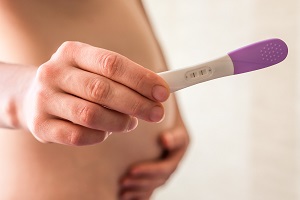Researchers at Baylor College of Medicine, Texas Children's Hospital and Rice University have discovered a new possible cause of female infertility. The fault would be a mutation of NLRP2 and NLRP7 genes. The mutations cause abnormal development of the placenta and embryo loss, even in the case of in vitro fertilization. The discovery will give an answer to many women who are unable to have a child and do not know why.
According to experts, in the case of 10-15% of infertile couples the cause is unknown. The same applies to 50% of women with recurrent spontaneous abortion. Mutations of genes NLRP7 NLRP2 and are harmless to the physical and mental development, so go unnoticed. Animal models, however, will reveal the role in the reproductive mechanism.
The researchers examined the Nlrp2 gene, the murine equivalent of NLRP2 and NLRP7 genes. The gene-free males showed no problem whatsoever. The females lacking the gene were normal to physical and cognitive point of view. The problems emerged only at the time of mating, who had three outcomes: some remained non-pregnant females; some were giving birth to stillborn pups and anomalies; some gave birth a few pups at a time. The small last group were often too large or too small compared to the average.
The methylation of certain genes occurs when the mother sends them to his son. In females devoid of Nlrp2 gene, the process is absent. It follows that missing part of the small chemical modification of DNA that is used to control the expression of embryonic genes. According to the researchers, the Nlrp2 proteins are largely external to the cell nuclei and are part of the subcortical mother complex. The complex is in turn part of the whole protein molecules that ovum and prepare it for fertilization.
When the Nlrp2 gene is missing or inactive, the subcortical complex is not formed and the methylation of the DNA fails fetus. This phenomenon makes it unlikely not only natural conception, but also in vitro fertilization. In these cases, in fact, the embryo does not develop and does not take root in the uterus. This could explain many of the failures that are difficult to understand procedure.
Source: bcm.edu



